Approximately 150 Philadelphia jazz devotees gathered at the Clef Club on Tuesday, July 31, for an energized and mostly upbeat Town Hall meeting held by the nascent Philadelphia Jazz Coalition. The event, in which this author participated as a panelist along with 14 local music
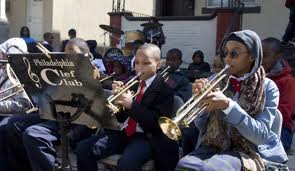
Organized by Jazz Bridge, an arts service and presenting organization directed by JJA member, JazzTimes reporter and singer Suzanne Cloud, the Town Hall format as designed so that five-minute presentations were offered by each panelist; two panels split the 15 presenters into more manageable groups of seven and eight, and following the presentations questions/comments were taken from the floor. Broadcast veteran Orien Reid served as moderator, and held the presenters to strict time limits.
A picture of Philadelphia as a legacy-laden font of music with several fragmented jazz communities emerged from comments by Cloud, Warren Oree and Graziella D’Amelio (producers of the recently suspended West Oak Lane Jazz and Arts Festival, principals of the LifeLine Music Coalition, Inc.), Lovett Hines (the Clef Club’s director of music education), Jeff Duperon (program host at WRTI) and alto saxophonist Bobby Zankel (Warriors of the Wonderful Sound) as well as audience members. Communications among the diverse sectors of the overall jazz scene appear to need of improvement; coverage by conventional news outlets is described as insufficient, especially when it comes to promotion of longstanding jazz presentations that are not in Philly’s downtown, where only one dedicated jazz venue exists (Chris’ Jazz Café); local musicians have become accustomed to receiving very low pay, and the city would benefit from a Philadelphia jazz festival.
Ivan Barias, an r&b/hip-hop producer who is president of the local chapter of NARAS chastened Philadelphia’s jazz scene for not yet embracing digital culture and social media, while Michael Ricci of AllAboutJazz spoke of the imminent launch of his JazzNearYou project, which will disseminate news of gigs to online subscribers, provided venues post their events to the JNY interface. Megan Fitzgerald of the Kimmel Center asserted that jazz is a valued part of that center-city concert hall’s programming. Josh Dubin of the city’s Office of Arts, Culture and the Creative Economy, and Patricia Washington of the Greater Philadelphia Tourism Marketing Corporation both talked about efforts to raise the profile of Philadelphia as a jazz center to city residents and visitors from afar (and both offered opportunities of collaboration and promotion, though not funding, to media content producers focused on Philly jazz). Randy Brown of the Philadelphia Music Alliance, George Starks of Drexel University, and JJA member Jason Fifield, a videographer (SlifePros) who is on the Jazz Bridge board also were panelists. Suzanne Cloud spoke of Jazz Bridge’s interests in establishing a minimum wage for musicians in Philadelphia, and finding a way to offer musicians group health insurance.
However, the purpose of the Town Hall was to solicit ideas for the mission and programming of the loose Coalition (which does not yet have a board, only a working group, and has not secured funding or determined what structures it will create for itself). Questionaires were distributed to attendees, who during comment periods asked why the city had not booked one jazz act for a highly promoted upcoming concert supported by Mayor Michael Nutter featuring rapper Jay-Zee, and suggested that regularly scheduled bus tours of outlying clubs could ferry audiences from venue to venue, among other ideas.
JJA members Shaun Brady, Joe Harrison, Nathea Lee and Jonny Meister attended the meeting. Prior to the meeting, as JJA president I conferred with jazz journalists Fifield, David Adler, Francis Davis, Bruce Klauber, Elliott Sharp and Karl Stark about the media landscape, with the intention of offering the Coalition consulations on media usage by the JJA, and encouraging members to work together to raise the profile of Philadelphia jazz with or without the Jazz Coalition’s direct participation. During my panel presentation, I urged all attendees to use all media platforms available to increase the buzz and spread the news about local jazz, and I assured the crowd that the challenges Philadelphia faces are similar to those in other U.S. cities where jazz is rooted but is not adequately recognized and financed. I urged the Philadelphia Jazz Coaltion to look to local businesses for support, along the model of the Chicago Jazz Partnership, and to realize the enormous potential of working together.
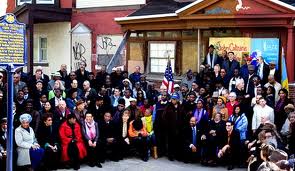 The event began with a brief set by the Clef Club Youth Band (flugelhorn, piano, vibes, bass and several different drummers taking turns), and ended with distribution 150 copies of the April 2012 “Great Day in Philadelphia” photo by Elena Bouvier of musicians, devotees and Mayor Mutter in front of the John Coltrane House (a designated National Historical Landmark) to those who were in the photo. The next move by the Jazz Coaltion will be an action report, derived from recommendations made on the handed-out questionaire, and another meeting of the Coalition’s working group, date tba.
The event began with a brief set by the Clef Club Youth Band (flugelhorn, piano, vibes, bass and several different drummers taking turns), and ended with distribution 150 copies of the April 2012 “Great Day in Philadelphia” photo by Elena Bouvier of musicians, devotees and Mayor Mutter in front of the John Coltrane House (a designated National Historical Landmark) to those who were in the photo. The next move by the Jazz Coaltion will be an action report, derived from recommendations made on the handed-out questionaire, and another meeting of the Coalition’s working group, date tba.



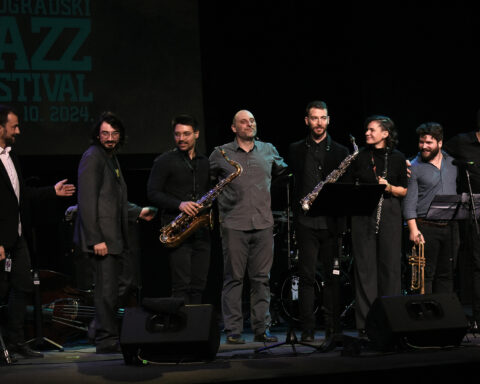
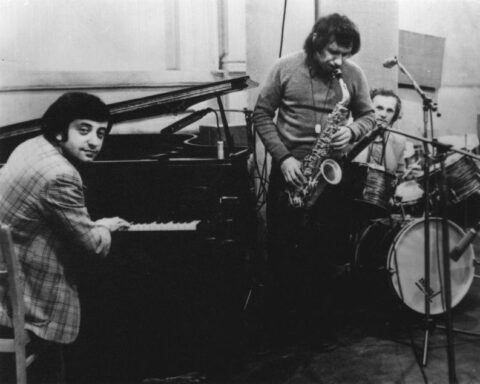
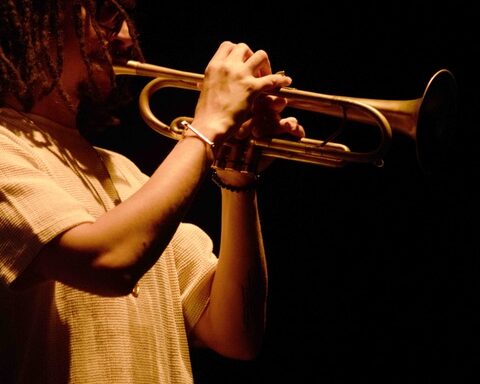
Thanks for the great writeup Howard...you were fabulous!
I just want to help the jazz media there create a foundation that could serve the community (communities) and the Philadelphia Jazz Coalition, as it continues to come together.